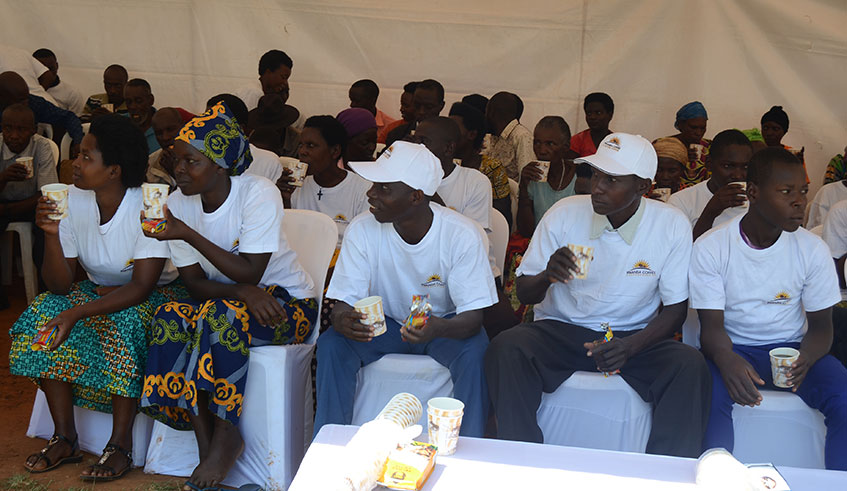

Ever since she was young, Epiphanie Nakabonye, a 41-year old resident of Byimana Cell, Karenge Sector in Rwamagana District, has been earning a living from coffee farming.
She was born into a coffee farming family.
And despite having adopted her parents’ trade at the age of 18, Nakabonye confessed that she has never tasted coffee.
"I have never drank coffee probably because we never had the skills to prepare coffee for home consumption,” she says.
Nakabonye, who has 350 coffee trees that produce an average of 660 kilogrammes every season, is among many farmers in rural Rwanda that depend on the cash crop for a living and yet have never or rarely drink coffee themselves.
According to official statistics, only 3 per cent of Rwandans drink coffee, and nearly if not all of them are in urban areas.
This came on light on Tuesday in Rwamagana District where the National Agricultural Exports Board (NAEB) had organised a campaign aimed at encouraging farmers to drink coffee.
Similar campaigns were carried out in previous weeks in Nyamagabe and Nyanza districts in Southern Province.
Last year NAEB organised an event to teach farmers how to make coffee at their homes.
However, according to Nakabonye, "it’s a difficult process and most farmers can’t do it on their own.”
The issue is compounded by the lack of coffee shops in the countryside.
"We do not have anywhere to buy processed coffee,” she said.
Rwamagana District Mayor, Radjab Mbonyumuvunyi, said, "We have held talks with coffee processing firms and agreed that we need to establish coffee shops in the area so that we make the commodity accessible.”
If the Government succeeds in its efforts to encourage domestic consumption of coffee, the move will help grow the country’s earnings from the cash crop and help cushion it against price fluctuations on the international market.
In 2018, Rwanda generated $69. 6 million from 21,313 metric tonnes of coffee exports, according to NAEB. The country produced 21,548 tonnes in the same year, meaning only 235 tonnes were sold locally.
Rwanda has 355,000 coffee farmers and 310 processing stations.
Maurice Habiyambere, in charge of Project for Rural Income through Exports (PRICE) at NAEB, said they are planning to ease access to packaging material for coffee processing firms.
Habiyambere believes that encouraging local consumption of coffee could motivate farmers to increase production and improve quality.
editor@newtimesrwanda.com


